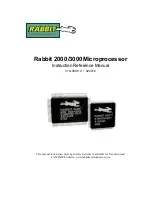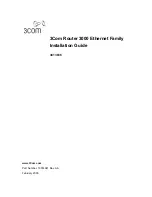
13-5
Catalyst 3750-E and 3560-E Switch Software Configuration Guide
OL-9775-08
Chapter 13 Configuring VLANs
Configuring Normal-Range VLANs
•
Maximum transmission unit (MTU) for the VLAN
•
Security Association Identifier (SAID)
•
Bridge identification number for TrBRF VLANs
•
Ring number for FDDI and TrCRF VLANs
•
Parent VLAN number for TrCRF VLANs
•
Spanning Tree Protocol (STP) type for TrCRF VLANs
•
VLAN number to use when translating from one VLAN type to another
Note
This section does not provide configuration details for most of these parameters. For complete
information on the commands and parameters that control VLAN configuration, see the command
reference for this release.
These sections contain normal-range VLAN configuration information:
•
•
Normal-Range VLAN Configuration Guidelines, page 13-5
•
Configuring Normal-Range VLANs, page 13-6
•
Saving VLAN Configuration, page 13-6
•
Default Ethernet VLAN Configuration, page 13-7
•
Creating or Modifying an Ethernet VLAN, page 13-8
•
•
Assigning Static-Access Ports to a VLAN, page 13-9
Token Ring VLANs
Although the switch does not support Token Ring connections, a remote device such as a Catalyst 5000
series switch with Token Ring connections could be managed from one of the supported switches.
Switches running VTP Version 2 advertise information about these Token Ring VLANs:
•
Token Ring TrBRF VLANs
•
Token Ring TrCRF VLANs
For more information on configuring Token Ring VLANs, see the
Catalyst 5000 Series Software
Configuration Guide
.
Normal-Range VLAN Configuration Guidelines
Follow these guidelines when creating and modifying normal-range VLANs in your network:
•
The switch supports 1005 VLANs in VTP client, server, and transparent modes.
•
Normal-range VLANs are identified with a number between 1 and 1001. VLAN numbers 1002
through 1005 are reserved for Token Ring and FDDI VLANs.
•
VLAN configuration for VLANs 1 to 1005 are always saved in the VLAN database. If the VTP mode
is transparent, VTP and VLAN configuration are also saved in the switch running configuration file.
Summary of Contents for Catalyst 3750-E Series
Page 48: ...Contents xlviii Catalyst 3750 E and 3560 E Switch Software Configuration Guide OL 9775 08 ...
Page 52: ...lii Catalyst 3750 E and 3560 E Switch Software Configuration Guide OL 9775 08 Preface ...
Page 1414: ...Index IN 58 Catalyst 3750 E and 3560 E Switch Software Configuration Guide OL 9775 08 ...
















































